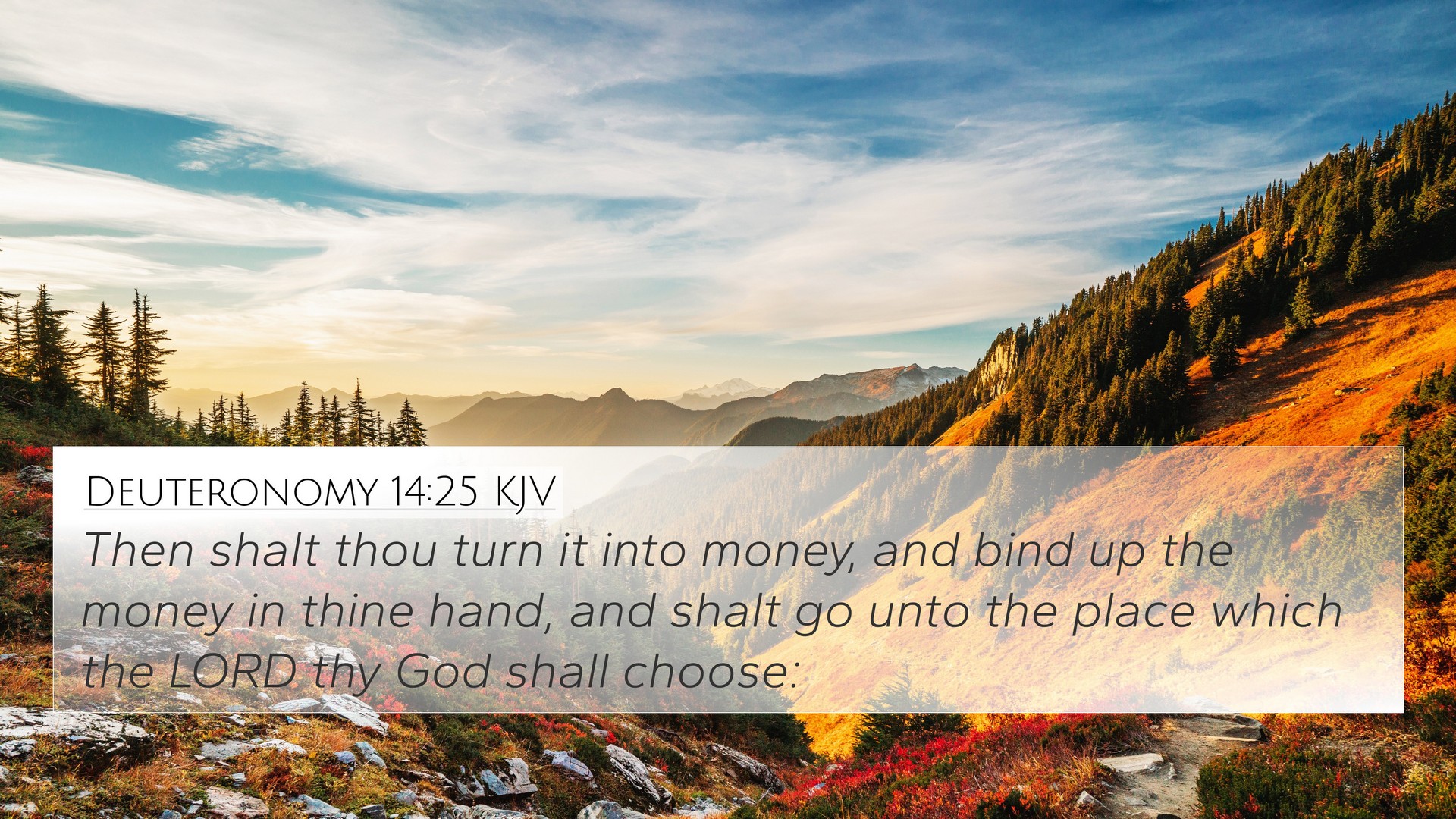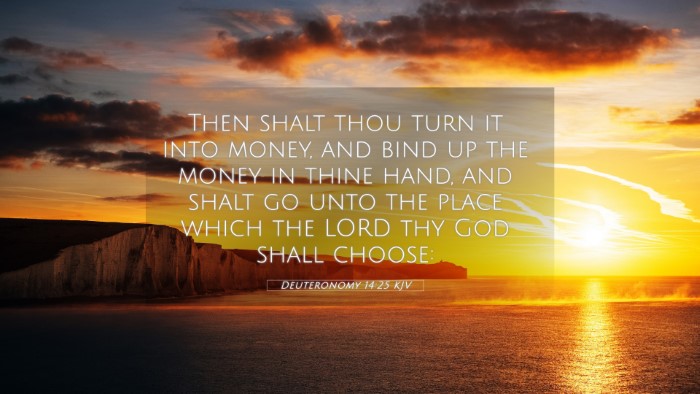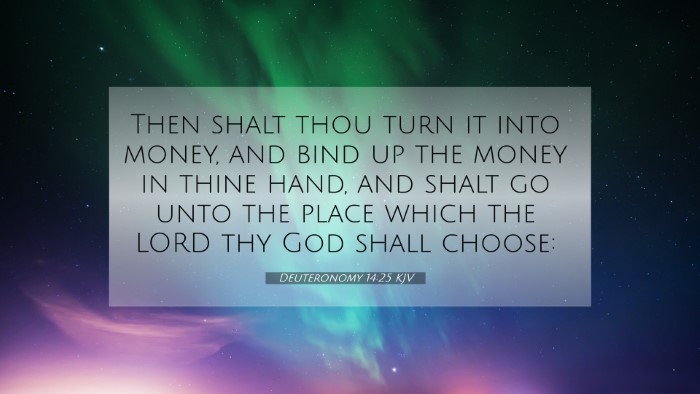Understanding Deuteronomy 14:25
Deuteronomy 14:25 states: "Then you shall exchange it for money, and bind up the money in your hand, and go to the place which the Lord your God chooses." This verse addresses the instruction given to the Israelites regarding their offerings during the annual festivals. The principles laid out in this verse extend beyond the physical acts of exchange and offer deep spiritual insights.
Summarized Meaning of Deuteronomy 14:25
In this verse, Moses is outlining the procedure for the Israelites to use when they were unable to bring their sacrifices or offerings directly to Jerusalem due to distance or other factors. Instead of being bound by the physical location of worship, they are allowed to convert their offerings to money and then travel to the designated holy place to present their worship before God.
Insights from Commentaries
-
Matthew Henry:
Henry emphasizes the principle of worship that transcends location and suggests that God desires the heart of worshipers more than the specific act of sacrificing. This flexibility demonstrates God's understanding of the practical challenges faced by His people.
-
Albert Barnes:
Barnes points out that this regulation reflects God's recognition of the diverse circumstances of the Israelites, allowing them to maintain their spiritual obligations even in remote regions. This highlights God’s character as accommodating and understanding of human conditions.
-
Adam Clarke:
Clarke elaborates on the idea of exchanging a specific offering for money as symbolic of the need for believers to engage in the blessings God provides while still fulfilling their spiritual duties. He discusses how the intent of the heart is critical in worship.
Connections to Other Bible Verses
The verse relates closely to several other scriptures, supporting the broader theme of worship and sacrifices in varying contexts.
- Exodus 30:13: Discusses the concept of atonement money.
- Leviticus 27:25: Addresses the valuation of offerings in monetary units.
- Deuteronomy 12:5: Emphasizes the place God chooses for worship.
- 1 Corinthians 16:2: Teaches about setting aside contributions for the church.
- Romans 12:1: Calls believers to present their bodies as living sacrifices.
- Hebrews 13:16: Encourages doing good and sharing, for with such sacrifices God is well pleased.
- Matthew 5:24: Advises making reconciliation before offering at the altar.
Inter-Biblical Dialogue and Thematic Connections
This verse highlights significant themes across both the Old and New Testaments, particularly regarding the intentions behind offerings and how worship is structured. It provides a window into understanding God’s expectations for those He calls to worship Him.
- Cross-Referencing Biblical Texts: Deuteronomy 14:25 serves as a connection point for discussions about how God's people interact with their offerings.
- Similar Themes: It aligns with themes found in the Gospels where Jesus critiques the attitude towards sacrifices made by the wealthy versus the humble offerings of the poor.
- Comparative Bible Verse Analysis: Examining how this passage aligns with teachings found in the Sermon on the Mount can reveal deeper insights into true worship.
- Thematic Bible Verse Connections: This verse illustrates the broader biblical narrative surrounding devotion, sacrifice, and the relationship between God and His people.
Application for Believers
Understanding Deuteronomy 14:25 provides tools for Bible study and application in modern Christian life. It teaches the importance of intentional worship and encourages believers to reflect on how their lives can embody the spirit of giving, despite the practicalities they might face.
For those prepared to engage deeply in Scripture, utilizing a Bible concordance and cross-reference guide can further expand your understanding of this verse's contextual meaning and its application throughout the biblical narrative.
Conclusion
Deuteronomy 14:25 embodies essential principles of worship that continue to resonate with believers today. By examining this verse and its related passages, Christians can gain a richer comprehension of their spiritual obligations, enhancing both personal worship and community practices.


